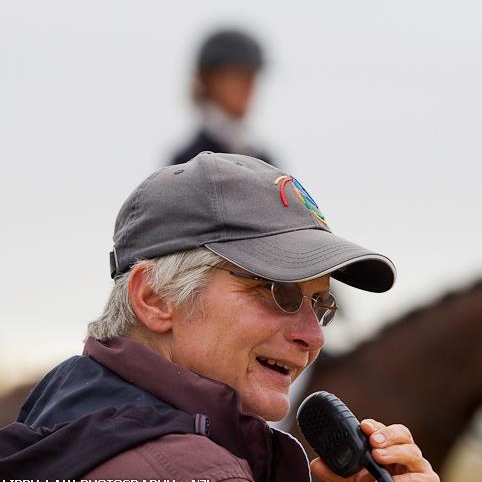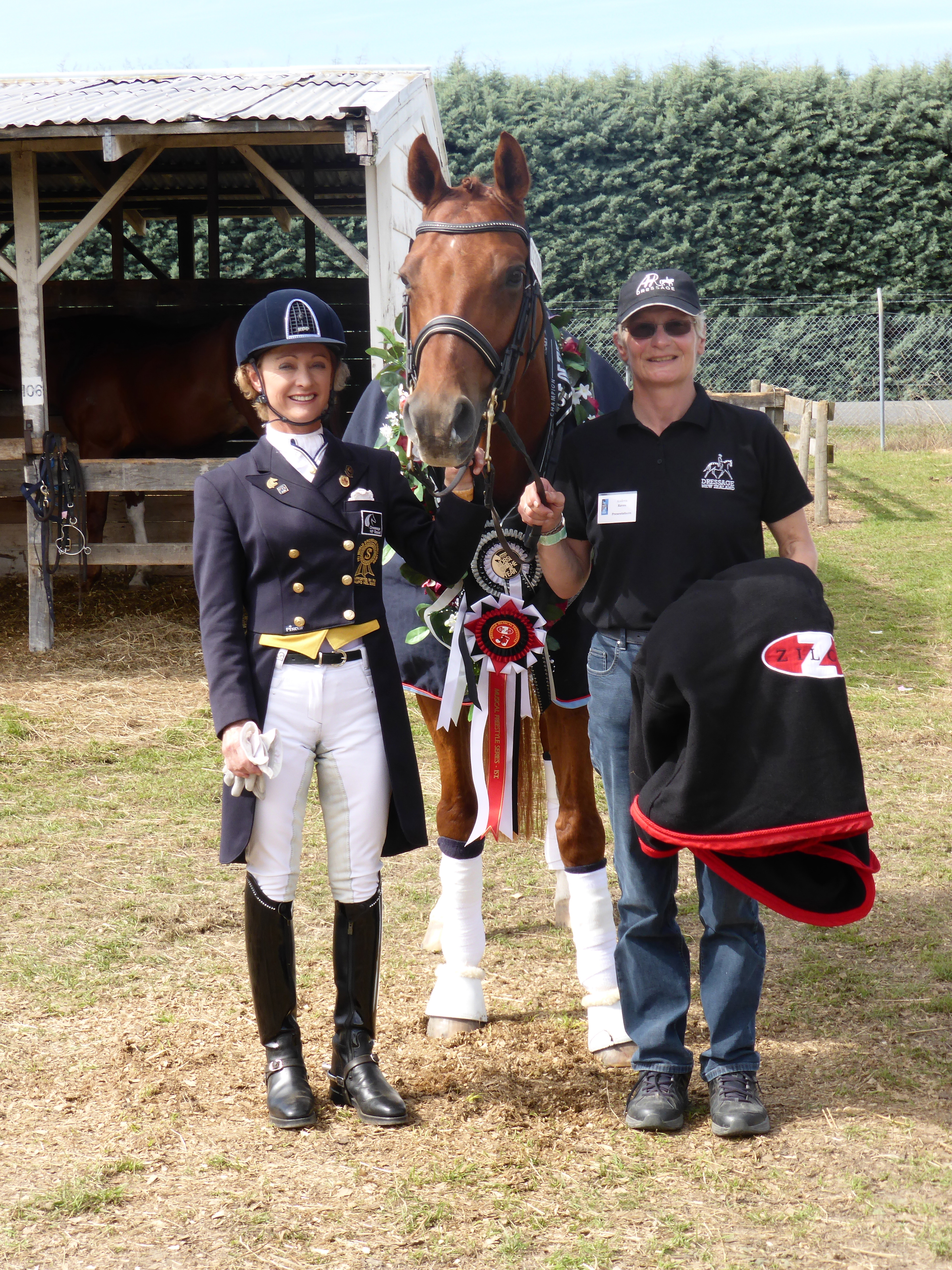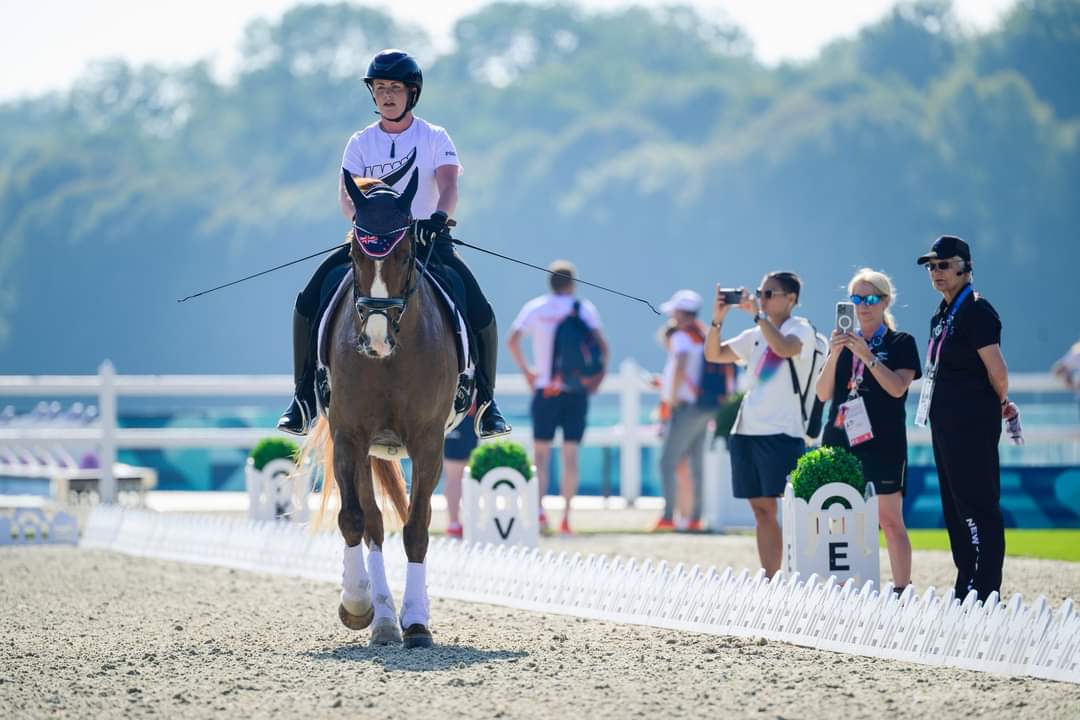Andrew Raves
Andrew Raves
- Coach Profile
A deep-seated passion for horses, a thirst for knowledge, and a fondness for problem-solving have helped propel Andrea Raves to the top echelon of dressage coaching in New Zealand.
Andrea’s career highlights included assisting the late Julie Brougham at the Rio 2016 Olympics and the World Equestrian Games in Tryon 2018. More recently, she has revealed her impressive versatility by coaching Louise Duncan, in sync with her horse Showcase BC, to the Paris 2024 Paralympic Games.
The Wellington-based coach coaches 80-90 riders from Whangarei to Dunedin. She has a hugely busy schedule, but she does not find the role a chore and is prepared to adopt a patient approach for long-term gains.
“Coaching dressage is being able to get the mind of the horse and the rider to work together as one,” explains Andrea. “It is important to get them both working on the same page. You have to understand how horses learn and how horse and rider could work together. Sometimes you need to scale it back a bit and sometimes it goes slower than people would like, it is a long journey.”
Born and raised in Krefeld, near Cologne, Germany, Andrea was introduced to riding at the age of nine. The hobby quickly evolved into a passion, and she started competing in dressage at the age of 12.
“I was never into jumping, but I enjoy the discipline of dressage. Dressage has no quick fix; you must follow the ‘Scale of Training’ to progress.”

Later, serving a riding and coaching apprenticeship in Germany – she is the holder of Pferdewirtschaftsmeister (German Master of Horse Trainer & Instructor). Her life was to take a new path when, with the encouragement of German-born but Auckland-based dressage coach Phillip Oxenius, she relocated to New Zealand over 35 years ago.
Initially starring as a rider, Andrea represented New Zealand three times in Australia, won a pair of New Zealand titles and a Horse of the Year Show title at the Grand Prix level before later focusing on coaching.
“I enjoy seeing the riders and horses improving and achieving their goals,” she says in terms of coaching. “It is my life and passion”.

By becoming the Development Officer on the Dressage New Zealand Board, a position she holds again after a few years’ break, she hopes to help the sport of dressage grow even more in New Zealand.
With a coaching philosophy founded on teaching the basics before ‘doing the fancy stuff’, she also believes her ‘adaptability’ is another strength.
So does the Equestrian Sports NZ Elite Coach and Dressage New Zealand A Grade Trainer believe coaching dressage is more art or science?
“It is a combination of physics and science which makes it become art,” she explains. “Physics comes into dressage because if the rider does not sit properly on the horse, they will not work together correctly. However, as a coach, you must be open-minded and know how far you can push a combination. You need to know their personalities and capabilities and try to combine them. A lot of science, feel, and trial and error is involved in getting the desired result.”
While science and art go hand in hand in dressage coaching, Andrea acknowledges that she has had to evolve her coaching style since arriving in New Zealand.
“I was way too tough when I first came to the country, but back then, we didn’t acknowledge different learning styles,” she explains. “Over time, I changed my style to include more why a rider should be doing something. I’ve added that to my toolbox, and I believe I’ve become a better coach because of it.”
Annually topping up her coaching expertise by returning to Germany – traditionally a powerhouse of global dressage – has also proved crucial in enabling Andrea to coach to a high level. Learning many “tips and trends” from the coaching and riding elite – including eight-time Olympic champion Isabell Werth of Germany – has also helped expand her knowledge base with the knock-on effect of benefiting the dressage riders Andrea coaches here in New Zealand.
While her success with Julie Brougham was one career highlight, another is her work guiding Louise Duncan to the Paris 2024 Paralympic Games.
Having known Louise before she contracted meningitis – which subsequently led to her disability of hypertonia – has made it easier for their coach-athlete relationship to flourish as the Levin-based rider has transitioned to Para equestrian.
“Louise has a great understanding about training a horse and she has the right philosophy behind her,” explains Andrea. “She has been riding a pony from a very young age, but since the meningitis, she is a lot weaker, and her concentration is not as good. She is relatively even in her body, which is good, but she gets tired very quickly. More so than for an able-bodied rider.”
There is little doubt coaching Para-dressage presents extra complexities. With so much of the success of the sport based on a perfect balance between horse and rider, disabilities and differing rider strengths on the right and left-hand side of the body present a challenge that needs to be managed.
“As a coach, finding a way around that is important,” she explains. “It is trial and error and requires patience and to work with the rider to ensure they can do their best. But I like working it out; you feel a sense of achievement; it is such a buzz.”
Guiding Louise to Paris 2024—where she went on to finish 13th in the Grade IV Para Grand Prix Test—prompted a huge thrill.
“What Louise did was amazing,” she adds. “She and her family really put their heart and soul into it and did everything possible. Louise was a star within the New Zealand Paralympic team, she is so bubbly, friendly and helpful. She did a great job and is a great ambassador for Para equestrian.”
Andrea says she is looking forward to working with Louise on her journey to the next pinnacle event – the Los Angeles 2028 Paralympic Games
Owning four horses herself, Andrea is not lacking in motivation to stay involved in the sport, but what qualities does a dressage coach require, in her opinion?
“Good knowledge is essential and to have a grounded qualification is also so important, it is way harder without it,” she explains. “If you want to help riders achieve their goals, you also need to show open-mindedness and a willingness to keep learning.”
